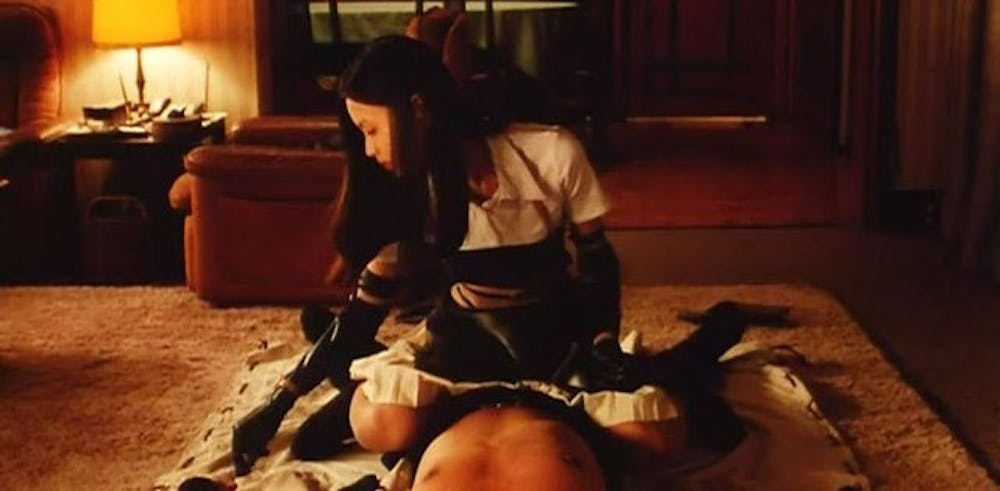This past summer, I let my roommates convince me to do something quite uncharacteristic: watch a horror movie, “The Audition.” Somehow, boredom and curiosity beat out the overwhelming urge to turn on “American Idol” and watch those horrific auditions instead .
One of the first horror movies I ever watched was “The Fourth Kind,” a mockumentary about alien abductions. While the movie terrified me during its actual runtime, once the lights came on, I realized how trite and melodramatic it was. After a few more horror movies, the quiet–quiet–loud formula I’d come to expect became dull, and I moved away from the genre. So, when I grudgingly turned off the lights and sat down to watch “The Audition” at 1 a.m., I wasn’t expecting very much.
“The Audition” is a Japanese film that tells the story of Aoyama, a widower who decides to remarry with the help of his friend Yoshikawa. Together, they hold an audition for a fake film role, soliciting applications from hundreds of young women. Through this audition, Aoyama meets Asami, a beautiful, crippingly shy former ballet dancer with whom he quickly becomes enamored.
The film follows the development of their relationship and the gradual revelation of Asami’s true character. The more desperately Aoyama pursues the secrets of her past, the creepier it becomes and the more futilely I yelled at him to run the fuck away. Unfortunately, Aoyama is just as trapped as the viewer, and he hurtles unwittingly toward the climactic final 15 minutes of the film. These minutes—which came after I had already entered a nearly catatonic state—are some of the few bloody ones in a film that has very little shock value. And yet I thought about it for weeks afterward.
What makes “The Audition” is the director’s choice to place decidedly real issues at the center of the plot. Aoyama is drawn to Asami because she epitomizes the femininity valued by an oppressive, patriarchal society. Despite being the product of a horrifying past, her submissiveness is praised—prized, even—by the men in the film. But Aoyama himself isn’t abusive; he has simply internalized the belief that a good woman is one who keeps her head bowed, who never speaks out of turn or says no. The violence that results is terrifying because of how inevitable it feels—how could Aoyama, burdened by the expectations of society and his teenage son, act any differently? And how could Asami, caught in a sickening cycle of abuse, end up being anything other than stunningly psychotic?
Good horror movies remain terrifying long after the lights come on and the characters fade out because they refuse to let us separate our world from the one on–screen. They are haunting because the horrors they portray are rooted in real life, where a button on a remote holds no more power than a desperate shout in an empty house when no one is there to hear you. “The Audition” is horrifying not because of the blood, or shock, or any other element typically associated with horror movies. The scariest of horror films, like “The Audition,” are frightening because they show the viewer a fundamentally flawed social construction and the calamity that results and then asks: Does this not look a lot like our world?

